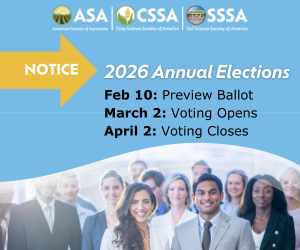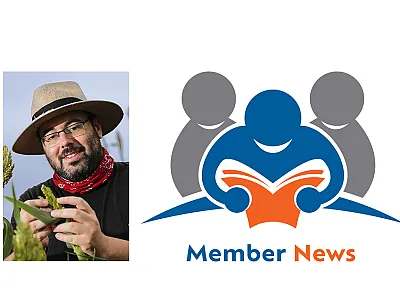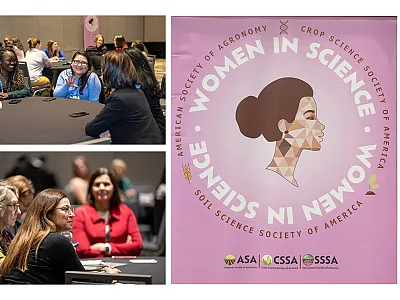Are You Transitioning to an Early Career Academic Faculty Position?

Are you an early career faculty who recently got hired as an Assistant Professor in a university after completing your Ph.D. or postdoctoral research? Do you feel overwhelmed? Don’t worry; you are not alone. Many early career faculty feel that way.
Most early career faculty are either recent graduates or have a few years of experience as a postdoctoral and/or industry professional. It can be a challenge when you are tasked with building your lab or research program from scratch and managing all of the details that go with it. Many resources are available to help you through this stage and succeed. Here are some of the things that you may want to consider to be successful in your early career.
Know Your Job Duties Well
The first and most important thing to know after starting your position is the exact duties of your job. During your interview phase, you might have learned more about your position, yet you may still have many questions. Reading your job description carefully will provide you with a lot of information about your responsibilities; apart from that, you should talk to your supervisor about your role and expectations. Read the tenure guidelines carefully, and understand the minimum requirements of your position. Whenever you feel like you are not doing or understanding what you are supposed to do, ask for help and clarification. A complete understanding of your job duties will help you set goals and remove any surprises.
Prioritize Your Work
Start your day or week with a master task list. Identify the most suitable prioritization method that would best work for you. Before prioritizing your tasks, consider some of the following questions: does this task support you in achieving your goals? What is the one major task that you wanted complete today? Are you excited about these tasks? Is it realistic? Have you left room to complete unexpected tasks? These questions will help you narrow down your priorities and make you productive.
Identify Productive Hours
Identifying the hours of the day when you are most productive is one of the keys to your success. Having this knowledge will help you to organize your work, achieve your goals on time, and successfully address more challenging tasks. To determine your productive hours, you may consider keeping track of how long certain projects or tasks take you and record the time of day. Over a period of time, it will become evident when you are most productive. It is up to you to decide on a flexible and easy way to identify your productive hours.

Self‐Assess Your Performance
Self‐assessment is essential to measure your professional growth. Self‐assessment’s primary goal is to give honest insight into your performance and see how others may perceive it. You can do this assessment every week, every month, or whenever you finish some critical tasks. Self‐assessment or evaluation will help you prepare for the department or external assessments. This will also give you a lot of confidence in your work and help you move forward.
Reach Out to Your Mentors
At the beginning of your faculty career, you can choose your mentors to help you throughout your academic tenure and professional growth process. These mentors provide you with critical guidance, help you make connections and collaborations, support your professional growth, provide emotional support, and act as your friends and champions. So, whenever you need any help with your work or feel lost, reach out to your mentors and seek their guidance.
Learn to Ask for Help
When you join as a new faculty member in a department, it is common that you may be hesitant to ask for help from your colleagues. Learn to ask for help. Again, this transition is an overwhelming process, and you need to get all the help you can to achieve your goals. Your colleagues are the people who can show you around the campus or workplace and help you make connections within and outside the department. We sometimes assume that other colleagues may not help us, but that is untrue. When you ask for help, you will learn new things, create collaborative working environments, share your ideas, and exchange your thoughts. Asking for help and connecting with your colleagues ultimately helps you work collaboratively towards common goals.
Maintain a Work–Life Balance
At the beginning of your career, you will put much effort into achieving your goals and dreams. At the same time, you need to maintain your physical and mental health for sustainable growth. Make sure you are keeping your work and personal life balanced. Spend time with your loved ones, pursue your hobbies, relax, and regenerate your energy. This work–life balance will be achieved over time, not in a single day. Spending long hours at work doesn’t mean you are productive and can negatively impact your health. When you prioritize your work and set realistic goals, you will always find time for yourself. Be productive and have a healthy career.
This column is brought to you by the Early Career Members Committee (ECMC), which serves members beginning their careers—new professionals and graduate students in agronomy, crop, soil, and environmental sciences. The ECMC consists of members from each of the three Societies who serve three‐year terms. Learn more at www.crops.org/membership/early‐career.
Text © . The authors. CC BY-NC-ND 4.0. Except where otherwise noted, images are subject to copyright. Any reuse without express permission from the copyright owner is prohibited.







